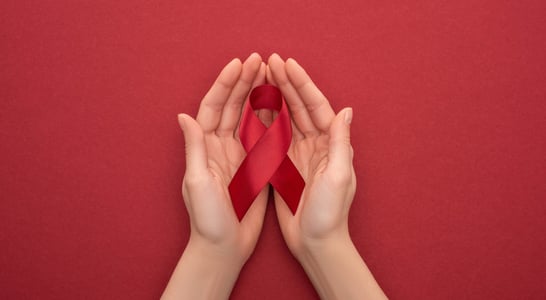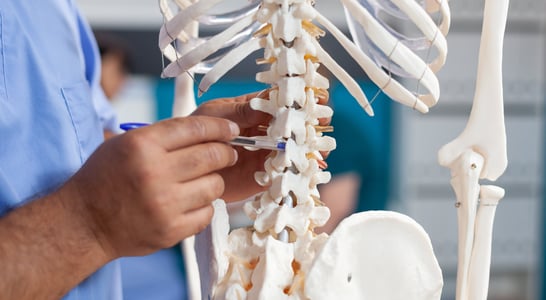
World Leprosy Day
Unveiling insights into an historical ailment, fostering understanding and empathy for a condition often misunderstood.
World Leprosy Day is a day each year dedicated to raising awareness about leprosy, a disease that has confounded humans throughout the centuries.
Once this diagnosis was a cause for great alarm, but the disease today is much better managed, thanks to ongoing research and modern medicine.
This important day builds awareness of leprosy not only as a remembrance of the past but in the spirit of committing to a future where understanding and compassion lead the way in addressing the related health challenges of the illness.
How to Celebrate World Leprosy Day
World Leprosy Day celebrations mean participating in one or more of the below-listed activities. The day’s goal is to increase awareness of and support for those affected by leprosy. Here are some ways you can participate:
Support Educational Campaigns
Organizing or participating in educational campaigns on World Leprosy Day can help spread accurate information about the disease.
These campaigns can vary. Think about distributing brochures, flyers, and other educational materials in schools, workplaces, and community centers. The media you give out can explain leprosy’s causes, symptoms, and treatments.
You might also consider hosting informational sessions, perhaps workshops, seminars, or webinars. Such sessions provide a more interactive platform for educating the public. Invite expert speakers, including medical professionals and researchers. These professionals are perfect for offering deeper insights into the disease.
Additionally, you can use your social media platforms to increase the reach of these leprosy awareness campaigns significantly.
Creating informative posts, sharing stories of those affected, and using the hashtag #WorldLeprosyDay can raise awareness and refute misinformation about leprosy.
Community Involvement
Engaging with local communities to organize events can effectively highlight the challenges individuals living with leprosy face.
Community walks can be organized to show solidarity with those affected, serving as awareness-raising events and fundraisers. Fundraising events, such as charity runs, bake sales, or concerts, can raise money for leprosy research or support services.
Art exhibitions can be particularly impactful. It’s an opportunity to share pieces that tell the stories of people affected by the disease through various mediums like paintings, photographs, or installations.
These events educate the public and may bring a greater sense of community and compassion for those who have this diagnosis.
Support Leprosy Center
Visiting or volunteering your time at leprosy care centers can make a tremendous impact on the lives of those affected by the disease.
Volunteers can provide companionship, assist with daily tasks, or participate in recreational programs. This support can dramatically improve the quality of life for leprosy patients. It also gives them a sense of acceptance and belonging.
Additionally, volunteers can raise awareness about the centers’ work within the community. This raises a voice to help create awareness about the pressing needs of those with leprosy, potentially attracting more support and resources.
The interaction between volunteers and patients can also help break down barriers and reduce the stigma associated with the disease
Join Advocacy Efforts on World Leprosy Day
Advocating for the rights and needs of people diagnosed with leprosy is crucial to help make sure they receive proper care and support.
Letter writing campaigns to legislators and policymakers can highlight the need for better healthcare services, funding for leprosy research, and laws that protect the rights of those affected by the disease.
Advocates can also work to combat stigma in society by educating the public about the realities of leprosy and challenging misconceptions, and promoting stories of resilience and success among those treated.
Collaborating with non-profit organizations, health advocacy groups, and international bodies can amplify these efforts, leading to more significant impact and policy changes.
Look into Personal Education
Educating yourself is the first step in becoming an effective ally on the front lines against this disease.
This involves learning about its causes, such as the Mycobacterium leprae bacteria, understanding its symptoms like skin lesions and nerve damage, and knowing the available treatments, including multidrug therapy.
Accessing resources from reputable health organizations, reading scientific literature, and attending talks or seminars on leprosy can provide comprehensive knowledge.
Being well-informed enables individuals to dispel myths and educate others and prepares them to offer meaningful support to those affected by leprosy, whether in personal circles or through volunteer work.
History of World Leprosy Day
Leprosy, aka Hansen’s disease, is a long-term bacterial infection caused by long-term exposure to a bacteria called Mycobacterium leprae.
The infectious disease mainly involves the skin, nerves, lungs, and eyes. It causes uncomfortable symptoms like skin lesions, numbness, and muscle weakness. It usually has a long incubation period, meaning symptoms can take years before they appear.
Leprosy is historically notorious for the social stigma associated with its disfiguring effects — before modern medicine, it often meant the loss of limbs. But today’s modern antibiotics make it a curable disease. Transmission probably occurs through prolonged and close contact with an infected person.
The introduction of multidrug therapy in the 1980s has made leprosy highly treatable. That significantly reduced its prevalence and severity.
Early diagnosis and treatment prevent disability and limit transmission, transforming leprosy from a feared disease into an easily managed condition.
World Leprosy Day was established in 1954 by French journalist and philanthropist Raoul Follereau (whose image is featured on the coin in the photo above).
His hope was to increase public awareness about leprosy and poverty. This event has helped to change perceptions and reduce the disease’s stigma. Thus, his campaigns helped to improve the lives of those affected by leprosy.
Today, World Leprosy Day is supported by important agencies such as the World Health Organization (WHO).
World Leprosy Day FAQs
Why is leprosy also called Hansen’s Disease?
Leprosy is named Hansen’s Disease after Gerhard Armauer Hansen, a Norwegian doctor who discovered the bacteria responsible in 1873.
Hansen faced resistance from the medical community, who didn’t initially accept his findings.
His work laid the foundation for modern treatment methods, debunking the myth that leprosy was caused by poor hygiene or divine punishment.
How did Mahatma Gandhi contribute to leprosy awareness?
Gandhi saw caring for people with leprosy as a moral duty, establishing homes for them and personally tending to patients.
His work inspired World Leprosy Day’s focus on dignity, as he believed that eliminating stigma was as essential as curing the disease.
Is leprosy as contagious as people once believed?
Surprisingly, no. Leprosy is one of the least contagious diseases, requiring prolonged, close contact to spread.
Many people mistakenly fear it, but about 95% of humans are naturally immune, adding to the mystery of its selective nature.
What’s the history behind “leper colonies”?
Leper colonies date back to ancient times when people believed the disease was highly contagious.
Many colonies still exist in parts of India and Africa, though now primarily as self-sustained communities.
Some residents choose to remain, finding safety and acceptance among others who understand their experience.
How do people celebrate World Leprosy Day in Brazil?
In Brazil, volunteers perform street dramas to educate the public about leprosy myths.
They use colorful costumes and puppetry to show how modern treatments can fully cure leprosy, aiming to reduce stigma through creativity
Why do people often associate leprosy with missing fingers or toes?
Leprosy doesn’t directly cause limb loss. Instead, nerve damage leads to numbness, making it easier for patients to injure themselves unknowingly.
Without proper care, these wounds can become infected, eventually resulting in limb deformities.
Are there any famous myths about leprosy?
A common myth is that leprosy is a “curse” or punishment, which fueled historical stigmas.
In medieval Europe, people with leprosy were even forced to carry bells to announce their presence, a practice driven by superstition rather than science.
What cultural misconceptions still affect leprosy patients today?
In some cultures, people view leprosy as shameful, associating it with poor morals.
This stigma can prevent people from seeking help. Education campaigns today work to dismantle these beliefs, showing that leprosy is simply a bacterial infection.
Which countries have the most leprosy cases today, and why?
India, Brazil, and Indonesia report the highest numbers of cases, mainly due to poverty and limited access to healthcare.
Overcrowding and lack of early treatment in these areas contribute to the continued transmission of the disease.
How did World Leprosy Day originate?
French humanitarian Raoul Follereau initiated World Leprosy Day in 1954.
He was inspired by the plight of those isolated due to leprosy and wanted to use the day to promote both medical understanding and human rights for affected individuals.
Also on ...
View all holidaysNational Opposite Day
Have dinner for breakfast, say goodbye to the people you greet and have fun with all the absurdities created by living life on the flip side.
National Irish Coffee Day
Warm, invigorating, and with a kick, this delicious beverage is the perfect pick-me-up on a cold winter's day. Sláinte!
National Florida Day
The land of sunshine! With endless beaches, theme parks, and alligators lurking in swamps, Florida's the perfect place for an adventure.
National Fish Taco Day
Crispy, golden tortilla stuffed with succulent fish, topped with fresh veggies and a zesty sauce — one bite will transport you to paradise.
We think you may also like...
ALS Awareness Month
A condition affecting motor neurons, ALS challenges resilience, fostering community, advancing research, and supporting individuals.








